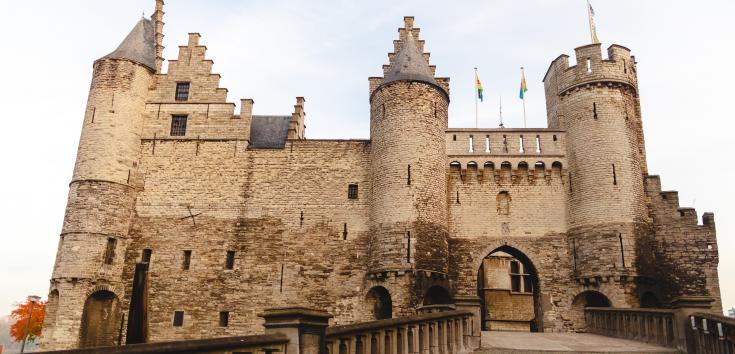Reviving the network of fortress belts in Antwerp: policy recommendations

On 16-17 November 2021, the Policy Learning Platform held an online peer review for the City of Antwerp (Belgium), which requested advice regarding its policy challenge on reviving the network of fortress belts.
A detailed list of challenges and recommendations can be found in the follow-up report.
Current state of affairs
The City of Antwerp features an impressive fortification heritage representing one of the largest military structures in Europe. Previously, the Province of Antwerp had taken the lead of the ‘Fortress Belts’ of Antwerp. However, in 2019, the Province of Antwerp ended its the leading role in the fortress belts network. At this point, the ‘Fortress Community’ of stakeholders decided to continue the cooperation of the network, the brand, the website and annual event. Today, the City of Antwerp is considering to lead the revival of the network of fortress belts in strong collaboration together with all stakeholders. In light of this, Antwerp has decided to utilise the peer review to tackle several policy challenges to valorise, vitalise and develop the forts in and around Antwerp through a peer review:
Reviving the network of fortress belts – network and cooperation: The city set out to explore opportunities for revitalization of the Fortress belts, legal structure and financing of similar projects, along with collaboration possibilities on both regional and European levels.
Common branding and governance structure: The city was interested in examples of successful branding and communication strategies of similar projects, as well as their governance structure and involvement of relevant stakeholders.
Peers from across Europe
Alongside Katharina Krell and Astrid Severin, our low carbon economy and environment and resource efficiency Thematic Experts, five excellent peers were invited, and participated in the peer review:
- Patrick Rang, Estonian War Museum – General Laidoner Museum, Estonia
- Renata Tomljenovic, Institute for Tourism, Zagreb, Croatia
- Josephine Kroneberg, City of Magdeburg, Germany
- Fabrizio Panozzo, Ca' Foscari University, Veneto, Italy
- Jiří Hofman, Project Terezin, Czech Republic
The experts came together to share their experience and to provide recommendations for ways of tackling Antwerp’s challenges related to the fortress belt revitalization. They provided the host with valuable insight, know-how and practical suggestions for solving the challenges presented above.
Recommendations
The peers recommended strategies and tools for stakeholder mapping and analysis, emphasizing the importance of stakeholder involvement in finding broad support. They recommended creating a governance structure after defining a joint vision and mission with key players. Two-level organization structure was determined as the most suitable starting point, with detailed description of the type of stakeholders involved and their respective roles. The role of volunteers was explored in detail as well. The peers advocated for a mix of public and private financing sources and provided numerous examples. Taking practical steps to improve their communication strategy, alongside branding-related tips, was suggested. Moreover, cooperation opportunities were identified.
The host’s policy challenges and all the peer suggestions can be found in the follow-up report.
Pleased with the outcome of two full days of intense talks moderated by the Policy Learning Platform, Karen Minsaer, Head of Archeology at the City of Antwerp, commented: “At the City of Antwerp, we are really passionate about the fortress belt and the stronghold, and are very impressed by the peers, since they studied our questions carefully. We see everything a lot clearer now and the peer review provided a lot of ideas on the functional structure, funding issue and communication. We now have to think what role the city can take, but we have a lot of fruit for thought, with very concrete input and suggestions on the next steps we should take.”
From the side of the peers involved in the peer review, Josephine Kroneberg from the planning office of the City of Magdeburg, added: “I am very impressed with the possibilities the Interreg Europe programme gives to people across Europe. It is great to interact with partners from other regions, because in my home area, there are only few people in specialised fields as niche as this one. The peer review allowed me to connect with like-minded professionals, and I hope that the connections and cooperation will continue.”
The host used the peer review to involve local stakeholders in a very lively discussion and is now assessing the recommendations received from the peers to see how they could inform the decision-making process on the future revitalization of the fortress belt.
Interested in a peer review? Find more information and apply on the dedicated page!
Credit: Photo by LightFieldStudios on envatoelements.
2021-12-16 Antwerp
Follow-up report of the peer review in Antwerp
